
Part 2 MARK STATMAN: MEXICO AND THE POETRY OF GRIEF AND CELEBRATION
Part 2 of my interview with Mark Statman looks closely at Mark’s Latin American poetic influences, his life in Mexico and ends with an extract
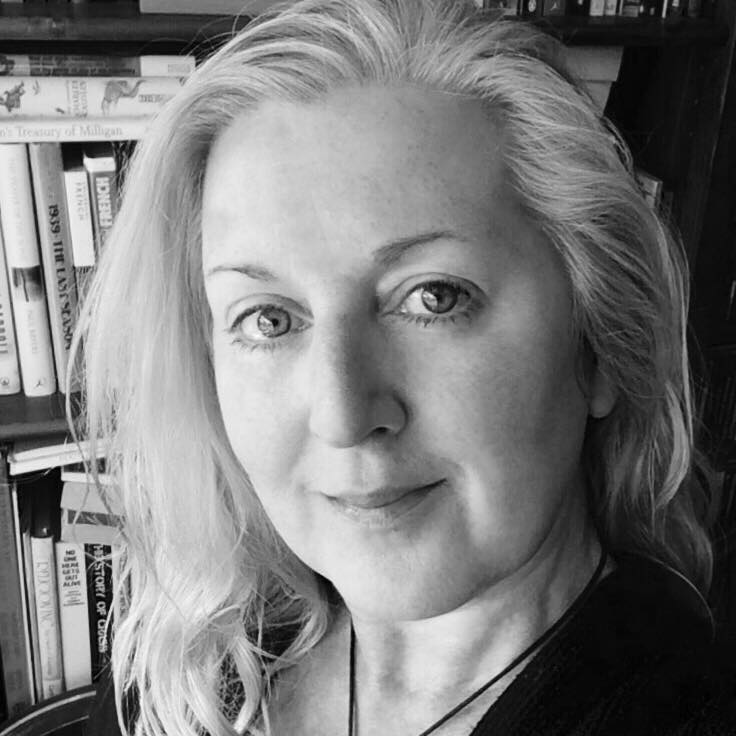
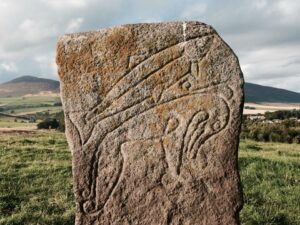
I interviewed Dawn Finch, librarian, activist, novelist and historical researcher about her amazing range of cultural interests. Dawn is the past president of the leading UK professional body for librarians CILIP and writes novels for young adults as well as books about ancient history.
Leslie: Your profile says you have a ‘lifetime fascination with antiquarian books, history and the Gothic’. Can you describe your relationship to books as a child and how that has led to your writing today?
Dawn: When I was small I was an avid reader, in fact it was more like an addiction really. I remember being told off for reading under the table in school, and I can’t remember a time when I didn’t have a number of books on the go. My mother took me and my sister to the library as often as possible, and that meant that we never had a shortage of reading material, even when money was so tight that we had a shortage of light and heat! My mother used to read to us by candlelight when the money in the electricity meter ran out, and this was seen by both of us as a great treat. I think that set me up for atmospheric reading. We always had books as presents, and I think that this made us see them as special and something to value. Libraries were like great palaces of treasure for me, and I could help myself for free, and that is the greatest treasure of all.
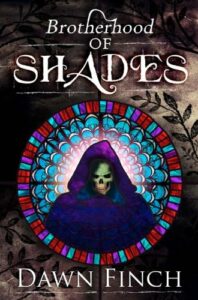
I have always worked with books, and my first job was sorting the post and unsolicited manuscripts at an academic publishers in London. This was just around the corner from Charing Cross Road and so most lunchtimes I could be found in a second-hand bookshop looking for other treasures. I can’t resist an old book and have so many that they are literally (no pun intended) piled up around the house. My second job was as a researcher for an educational unit at a cathedral, and that job lead me into libraries and helping to catalogue the maps of the local history archive. From there I went into libraries, and now have worked in them for around thirty years. I think that these are all linked for me – the past on paper so to speak!
Leslie: What are the differences and similarities between your historical writing and your young adult fictions in terms of working methods and outcomes?
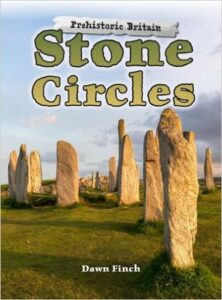
Dawn: All writing requires research. My fiction is largely based on elements of historical fact and I aim to weave the past into the fantasy, or the fiction. In that sense there are a number of similarities. Research is key and I spend months researching something before anything goes down on paper. I am not a historian or an archaeologist, but in a way that helps as it does not give me bias to any specific subject or to one area of study. With a background as a researcher and librarian I know that what I need to fully cover a subject is primary sources, and a whole load of experts. I spend a lot of time building a strong list of experts who can help me pick through bias to find a balanced set of information. I always say that I don’t know all the answers, but I’m damn sure I know where to find them!
Leslie: As a writer, who are you influenced by, and why?
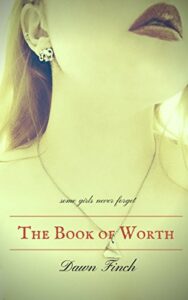
Dawn: I am influenced by thousands of different writers. I read hundreds of books each year and the great ones add another pebble to the mountain of past reading experience. The right book at the right time can change, or save, a life. I’m thankful that I’ve read a lot of what I’d consider to be the right book.
Leslie: Besides being a writer you are also an activist, campaigning about libraries and gender/sexuality issues – what set you off and why are they important to you?
Dawn: My parents were young and open-minded, and my father was a union rep and very outspoken about the rights of working people. I think that was my first experience of activism. My mother was very involved in feminism and Ban the Bomb and so I grew up hearing strong opinions about human rights. That has remained with me. At school I was different from the others. I was geeky, booky and plain and very much not one of the popular kids, and was bullied in school. When I met a group of punk rockers as a young teen, it was as if everything fell into place. They were passionate about things like CND, civil liberties, animal rights, freedom of expression and creativity. They were all different – wild and crazy – and all comfortable with who they were – artists, musicians, poets, writers, dreamers. They changed my life and gave me the confidence to not care about what was expected of me, and to focus on dreams and on being a better human being.
Leslie: What is it in your character that unifies and drives your different areas of interest?
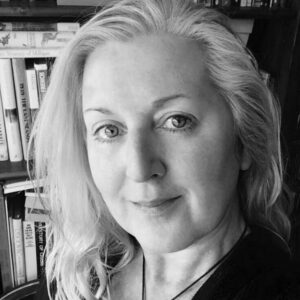
Dawn: I think that we are all made up of the things that we have done in the past, a sort of a jigsaw puzzle of the experiences of our lives. Some of those jigsaw pieces might not exactly fit, and some might need to be a bit squashed into place, and some might be a bit broken and horrible, but in the end we have a picture made up of what we have done and how we have lived. I strongly believe that at the end of my days I want to look back on that bigger picture of my life, and I want it to be one that makes me happy, even with the broken bits! I want it to be an overall picture that represents a life that somehow made a positive difference. It’s up to me to make that happen.
Next week, prizewinning poet Harriet Levin Millan writes about what she has learned from listening to the stories of refugees, and how she has turned that experience into literature.
ABOUT LESLIE TATE’S BOOKS:

Part 2 of my interview with Mark Statman looks closely at Mark’s Latin American poetic influences, his life in Mexico and ends with an extract

I interviewed international poet and translator Mark Statman about Volverse/Volver, his 14th published collection. Mark, who has won national arts awards, is Emeritus Professor of Literary

I interviewed Lisa Dart, finalist in the Grolier, Aesthetica and Troubadour Poetry Prizes and author of The Linguistics of Light (poems, Salt, 2008), Fathom (prose

I interviewed writer Julia Lee Barclay-Morton about her experience of autism. Julia began as an experimental dramatist in New York, moving to the UK to

I interviewed Gillean McDougall from Glasgow, who edited the collaborative projects Honest Error (on Charles Rennie Mackintosh and his wife Margaret Macdonald) and Writing the
| Cookie | Duration | Description |
|---|---|---|
| cookielawinfo-checkbox-analytics | 11 months | This cookie is set by GDPR Cookie Consent plugin. The cookie is used to store the user consent for the cookies in the category "Analytics". |
| cookielawinfo-checkbox-functional | 11 months | The cookie is set by GDPR cookie consent to record the user consent for the cookies in the category "Functional". |
| cookielawinfo-checkbox-necessary | 11 months | This cookie is set by GDPR Cookie Consent plugin. The cookies is used to store the user consent for the cookies in the category "Necessary". |
| cookielawinfo-checkbox-others | 11 months | This cookie is set by GDPR Cookie Consent plugin. The cookie is used to store the user consent for the cookies in the category "Other. |
| cookielawinfo-checkbox-performance | 11 months | This cookie is set by GDPR Cookie Consent plugin. The cookie is used to store the user consent for the cookies in the category "Performance". |
| viewed_cookie_policy | 11 months | The cookie is set by the GDPR Cookie Consent plugin and is used to store whether or not user has consented to the use of cookies. It does not store any personal data. |
4 responses
A very interesting author interview, Leslie. I really enjoyed reading about Dawn’s early experiences with books.
Yes, the part about being read to by candlelight is filmic! 🙂 🙂 🙂
Dawn’s early experiences show how vital libraries are for children especially when there isn’t the money to spend on books. I could really identify with her childhood and the idea of books being so special you treasured them as presents when you were given one. It is so wonderful that she is now hooking a whole new generation of young adults on the magic of books through her own writing.
Yes, Dawn’s a real fighter for libraries! 🙂 🙂 🙂